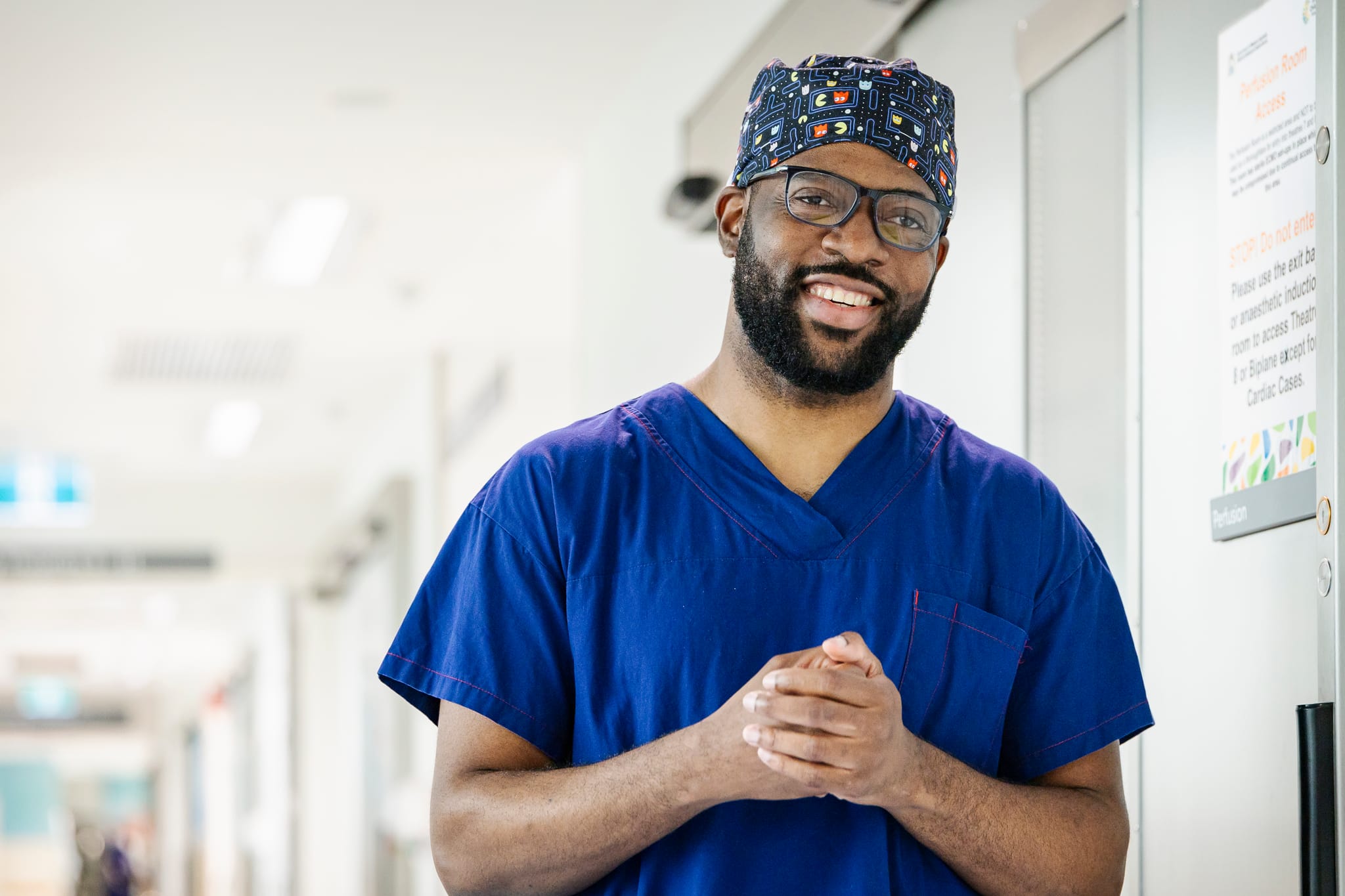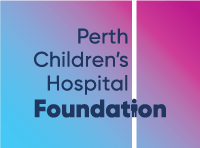
From Jamaica to Perth: Meet Dr Jheuvan Leslie.
- Perth Children's Hospital Foundation
From Jamaica to Perth: Meet Dr Jheuvan Leslie.
- Perth Children's Hospital Foundation
Dr Jheuvan Leslie is an Interventional Radiology Fellow at PCH, a role made possible thanks to funding from Perth Children’s Hospital Foundation (PCHF).
Originally from Kingston, Jamaica, Dr Leslie came to Perth from Bustamante Hospital for Children, the largest children’s hospital in the English-speaking Caribbean, to expand his knowledge and skills.
Earlier in his career, Dr Leslie had a keen interest in pharmacology. “I wanted to find new drugs, perhaps from a flower or bush, that could benefit everyone,” he said. However, inspired by his family GP, he shifted his focus to medicine.
Throughout medical school, he developed a strong interest in computer science, which later shaped his fascination with radiology and medical imaging. After graduating, he began practicing medicine in Jamaica, and by his third year, he found his calling in paediatrics.
“Kids tend to bounce back quickly, which makes working with them especially rewarding,” he said.
In 2024, Dr Leslie was selected for an Interventional Radiology Fellowship at PCH, generously funded by PCHF, thanks to the support of Telethon – which has been transformative for his learning and development.
Hold on, what’s paediatric interventional radiology?
Paediatric interventional radiology involves using small tubes, needles, and special imaging (such as X-rays or ultrasounds) to look inside the body to diagnose and treat health conditions without major surgery. It’s less invasive for patients and often leads to faster recovery.
“Arteries and veins are like pipes, so sometimes it feels like advanced plumbing,” says Dr Leslie.
And, what’s a fellowship?
A fellowship is a period of advanced training that doctors complete after finishing their regular studies, to become an expert in a specific medical area.
“I’m incredibly grateful to PCHF for providing this opportunity,” he said. “Back home, interventional radiology is more focused on adult care, so many doctors aren’t as comfortable managing paediatric cases.”
During his fellowship, Dr Leslie has gained important skills not commonly practiced in Jamaica, including the use of advanced radiology techniques to treat issues with the lymphatic and venous systems in children.
One of the most rewarding aspects of his fellowship has been performing simple but impactful procedures like sclerotherapy, which involves injecting a chemical into blood vessels to shrink fluid-filled pockets, helping to reduce swelling in areas like the stomach, arms, legs, or face.
“There was a child with a large lymphatic malformation (swelling from fluid) in their chest, making it difficult to move their arm. After a few sclerotherapy treatments, they regained full use of their arm and looked like any other happy, healthy baby, he said. “By removing or reducing a malformation, we can prevent disfigurement, reduce risk of infection, and improve confidence and movement – which can make a huge difference and drastically improve a child’s quality of life.”
One of the most challenging aspects of his work has been the delicate task of placing catheters (tiny tubes used to move things in and out of the body) into small arteries, which requires hours of skill, patience, and planning.
Dr Leslie is actively involved in projects advancing the field of paediatric interventional radiology. Together with Dr Craig Gibson, Head of Medical Imaging at PCH, and Professor Derek Roebuck, he’s working the publication of a new sclerotherapy technique. In addition, he’s contributing to a systematic review of hepatic artery embolisation – a procedure using tiny tools to block blood vessels in the liver, to stop uncontrolled bleeding – as well as helping to develop a procedure manual to support future interventional radiology fellows.
Dr Leslie is particularly excited about the potential of interventional radio-oncology, where chemotherapy or radiation can be directed precisely at tumours, minimising exposure to the rest of the body. While this group of procedures is not yet being performed at PCH, it is an area of interventional radiology that he hopes to see grow in future.
“Some of the procedures we perform are groundbreaking,” he says. “The research is still relatively new, so being among the first in the country to treat children with innovative techniques like Bleomycin Electrosclerotherapy – using both medication and electric current to treat dysfunctional veins – is significant. It’s especially exciting given some lymphatic malformations don’t respond to traditional treatments. This new technique offers a safe, effective alternative, giving hope to patients who thought they had no other options.”
When Dr Leslie’s fellowship ends, he plans to return to Jamaica and implement the skills he’s gained, with his first goal being to set up a comprehensive Vascular Access service.
“At PCH, there’s a robust Vascular Access service available 24/7, providing PICC lines – small, flexible tubes inserted into a vein in the arm to deliver antibiotics or other medications – as well as chemotherapy ports, which are small devices implanted under the skin to allow easy access to veins for administering chemotherapy. It would be fantastic to have something similar back home, though it will require extensive staff training, which will be an interesting new challenge.”
“The radiology department at PCH has been incredibly supportive,” he said. “It’s a very welcoming group of people, and it’s so important to have good mentorship. For anyone considering a Fellowship in Interventional Radiology, Dr Leslie offers this advice: “Put yourself out there as much as you can. There’s a fine balance between gaining experience and ensuring safety, but if you’re not performing procedures, you’re not going to improve.
“Also, while much of radiology involves studying scans and screens, don’t forget the importance of soft skills and patient interaction. At PCH, the team makes sure to connect with both children and parents before and after procedures. This follow-up care is just as important as some of the technical work we do.”
Support world-class expertise, please donate to PCHF today at pchf.org.au/donate

